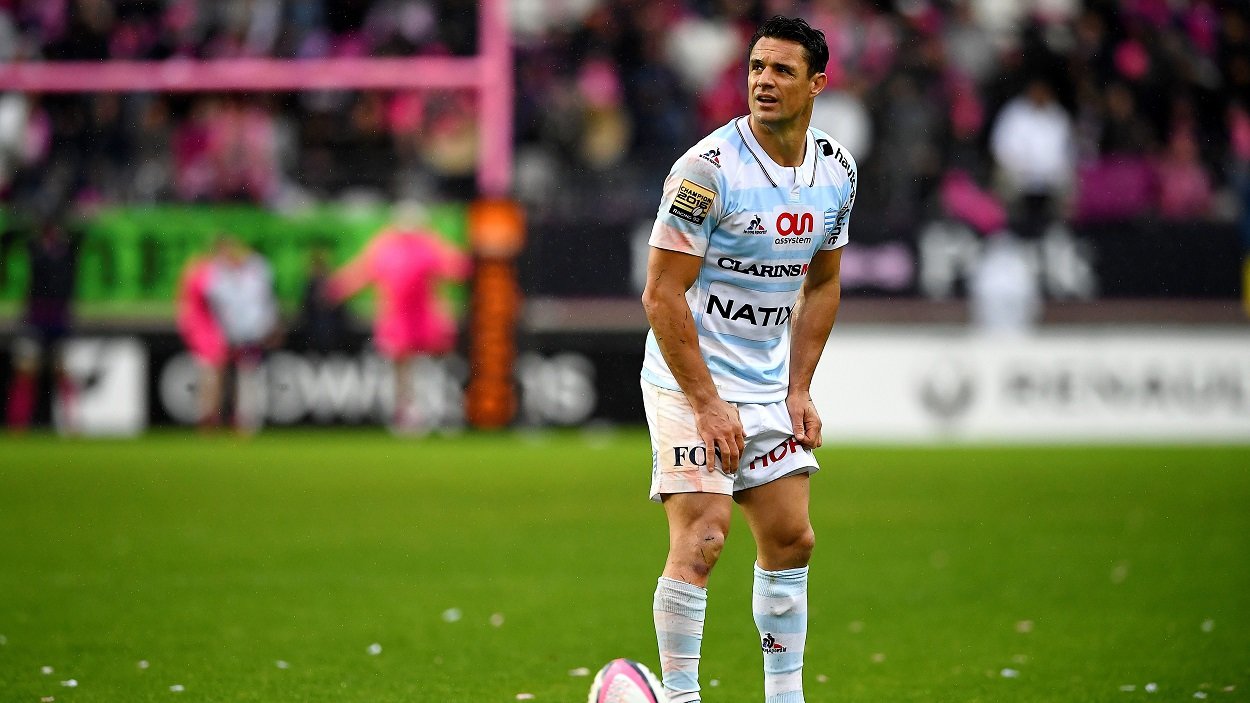So you think rugby is a game for the young? Don’t be too sure, writes James Harrington.
The ageless Dan Carter could make one grand final ‘international’ appearance, according to reports from north of the equator.
The Rugby Paper has claimed that the Barbarians are confident they can persuade the 35-year-old to play against England on May 28.
If it happens, and nothing is official yet, he could line up alongside confirmed Baa-Baas Adam Ashley-Cooper, Will Genia, Facundo Isa, Census Johnston, Corey Flynn, Bundee Aki and Thierry Dusautoir in guest coach Vern Cotter’s squad at Twickenham.
Who wouldn’t want to see a team liberally sprinkled with those players in action? Aki and Isa apart, it’s not so much a Baa-Baas side as a Legends one.
What age may have taken away from many of them in terms of raw speed and power it has more than made up for with great dollops of low-cunning and exceptional game-reading.
Yes, players are bigger and stronger and faster and hairier these days. But don’t be fooled into thinking that means rugby is a young player’s game. There’s plenty of room for the older, wiser head.
History, even recent history, proves that experience is the most valuable commodity for a player. And experience is one of those fine-wine virtues. It comes only with age.
Before the 2003 World Cup final, England – whose squad for the showpiece match boasted a combined total of 638 caps – were labelled ‘Grumpy Old Men’. So many of them were well into their 30s at the time that, when Jonny Wilkinson, a mere stripling at the age of 23, ran out onto the field, he was unable to lower the side’s average age below 28. The average age of the 2011 and 2015 World Cup-winning All Blacks was also 28.
[rugbypass-ad-banner id=”1473306980″]
Four years before England won the northern hemisphere’s only World Cup, Australia’s triumphant side won the final with 622 caps. In 2007, South Africa beat England in Paris with 688 caps-worth of experience. In 2011, New Zealand boasted 709 caps – a belated acceptance of the wisdom that wizened rugby sages will work title-winning wonders better than wet-behind-the-ears tyros.
Not one of those teams comes close to the 2015-vintage All Blacks. New Zealand’s World Cup final team in England had a combined total of 1,339 caps, at an average of 48 per player – the highest of any side in the tournament (for the record, South Africa were second with 42, Australia 41, and Argentina 39).
The fact that New Zealand lost more than 800 caps of experience to retirement after lifting the Webb-Ellis trophy is so well documented that, for more than a year, it was impossible to write an article about the All Blacks without mentioning that figure at least once.
Ironically, it has been left to the All Blacks to prove that the history of rugby age is bunk. It is probable that any team they field against the British and Irish Lions this June will be noticeably out-capped. Yet, if there’s any side that can demonstrate youth and brilliance can outperform experience and low-cunning, it’s them.
Bringing this back to the opening three paragraphs, for a moment. Carter may have a problem, which is why nothing has been confirmed. Racing 92 could qualify – against what seemed insurmountable odds not so long ago – for the Top 14 play-offs if they beat Bordeaux next weekend.
That would mean a quarterfinal on the weekend of May 20. Win that, and they would be in the semifinals on the weekend of May 27 – the same weekend as the Baa-Baas match against England.
Carter has not had the best of seasons, but there’s no way that his bosses at Racing would release their marquee player – who marshalled them to the title in 2016 and who has the experience and, yes, low-cunning, to win the big games – when there’s a Top 14 title for grabs.
Watch the June Internationals streaming live on rugbypass.com, home of the best online rugby coverage including news, highlights, previews & reviews, live scores, and more!


















































